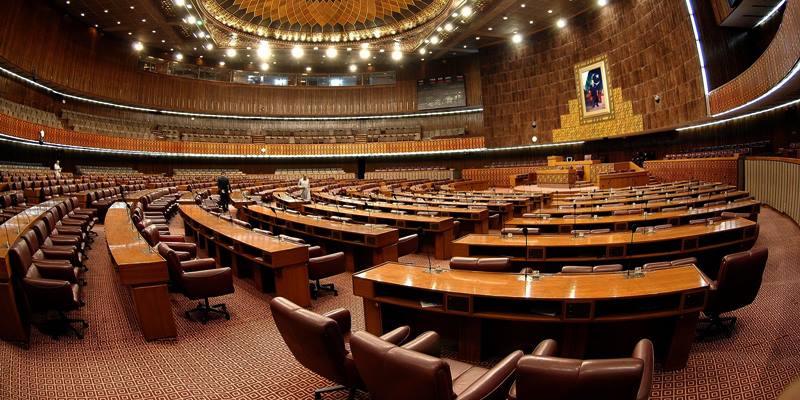My piece published in The News
The obvious fallout of the media-government war has been a virtual blackout of what the civilian governments have achieved
Given the average shelf life of any civilian government, it is almost miraculous that the incumbent government has survived and there are signs that its removal is not immediate. The longevity of civilian order has less to do with the inherent strengths of its style of governance or delivery of public goods that it had promised in its manifesto. The survival of this government is an outcome of the lack of options for the establishment as well as its international allies, notably the Western powers. Leaving the conspiracy theories and the excessive over-reliance of the analysts on the American factor, we can safely argue that the military establishment of Pakistan and its intelligence agencies has found themselves in a unique situation since the assumption of the presidency by Asif Ali Zardari.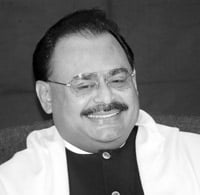
The truth is that Pakistan People’s Party, an anathema to the civil-military bureaucracy, has assumed the most important and powerful offices that a civilian government can aspire. Two years ago, when the Prime Minister Yousaf Raza Gillani was elected as the Prime Minister it was unimaginable that the PPP would assume the highest office of the state. However, through deft, and according to some wily moves of Asif Ali Zardari, the PPP has attained political power in a manner that smacks of the traditional power-play staged and enacted by the military establishment. This power play is essentially devoid of the trappings of high-sounding morality, is opportunistic and works on the principle of maximisation of political gains regardless of their consequences for the Federation. Interestingly, Zardari’s amoral political cards have also been successful due to the fact that the political elites of smaller provinces have forged strong alliances with his political objectives. This is why the Pakistani establishment has been in a dilemma since the fateful day when he was given the oath of office by none other than Justice Dogar. While an independent and belligerent Supreme Court ousted the oath-giver, the top beneficiary remains ensconced on the Islamabad hill.
The approach of Pakistan’s new power-centre, i.e., the electronic media towards President Zardari and the PPP government underwent three distinct phases during the last few years. In the first instance, the media was sympathetic to Zardari and the PPP in the aftermath of Benazir Bhutto’s tragic murder, not too far away from the GHQ. Yousaf Raza Gillani’s consensual election was hailed by the media as a victory of post-military order and the exit of the former military dictator was only a matter of time in early 2008.
The second phase related to the breakdown of the PML(N)-PPP accord over the restoration of the judges when sections of the Pakistani media strongly criticised the PPP for its betrayal of the national cause. More importantly, this betrayal was viewed as a blow to constitutionalism. In reality, however, rule of law is nothing more than the survival of bourgeois dominance, which is guaranteed by independent judiciary that ensures the sustenance of corporate interests, private property rights, and the livelihoods of the corporate lawyers. Not surprisingly, the leaders of the lawyers’ movement were also the top corporate lawyers. It is a separate matter that in the last two years, many of these legal eagles have shifted their political position and realised that the primacy of the democratic process is central to the emergence and safeguarding of constitutionalism in Pakistan.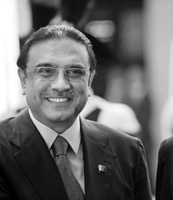
The third phase of the media offensive against the elected government commenced with the disclosure of the Kerry-Lugar Bill in 2009, when almost all the variants of media opinion took a hardline jingoistic, inward-looking and conventional line on Pakistan’s national security apparatus. The bill was seen as a blow to the military establishment whereby an unscrupulous government headed by a “corrupt” individual had sold national interest in lieu of a few million dollars. The reality is that not only was the Kerry-Lugar Bill passed by the US legislature, but it is operational now and it can be rightfully seen as a small beginning of a new partnership between the US and civilian government. This shift in Pak-US strategic relationships has been by and large ignored by the mainstream commentary on Pakistani politics.
Three decades of military rule under Ayub, Zia and Musharraf respectively indicated that US aid was tied to strategic objectives in the South Asian region, where a rentier state worked almost in isolation from its citizenry to advance the imperial interests. However, this time, a new relationship has been forged where the people of Pakistan, through their legitimately elected national and provincial governments, have been recognised as vital to the operation and modification of US foreign policy in this troubled region of the globe. It would be premature to say how this partnership will play out in the short to medium-term, but it is absolutely clear that the incumbent federal and provincial governments, especially the NWFP civilian government, have shifted the way the Pakistani state engages with the sole superpower.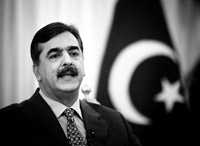
The current, i.e., third phase of the media-government relations is continuing in its confrontational form, where deadlines are issued like decrees by media gurus that relate to not just the fall of the government but also to individuals at the helm of power for their sins of omission and commission. There is obviously a problem with the PPP’s media management that suffers from the larger incompetence, which the post-Bhutto PPP governments are known for. In part, long spells of military rule have not enabled the political parties to flourish as policy think-tanks and strategic entities. Instead, most political parties in Pakistan react to the whims and moods of the military establishment, adjust their positions accordingly in pursuit of power and find ways of accommodation with the all-powerful intelligence agencies.
The obvious fallout of the media-government war has been a virtual blackout of what the civilian governments have achieved despite their obvious lack of capacity, the legacy of a long military rule and the unfavorable global economic conditions. First and foremost, the PPP and its coalition partners have displayed an unwavering and unflinching position towards the menace of sectarian extremism, which incidentally is a creation of the powerful and unelected institutions of the state. In fact, there is no other political party in Pakistan that can be dubbed as truly anti-extremism as the current ruling gang. This unequivocal position has also led to successful deployment of the Pakistani military in the troubled regions of north-western Pakistan, the continued elimination of high-value terrorists and restoration of civilian writ in the NWFP province. In 2008, there were at least six districts of the NWFP where the provincial government did not have administrative control. In 2010, the situation has radically altered despite the huge challenges of poverty, injustice, and resentment against the US drone attacks. Perhaps this policy has also been one of the key factors in undermining the image and credibility of the civilian government for there are multiple centres of power and influence that are pitted against this ideological worldview. Such dissenting voices range from the extreme left to the extreme right and most importantly, the Urdu press and its counterpart voices in the mainstream national electronic media. However, the commitment of the government thus far remains unwavering.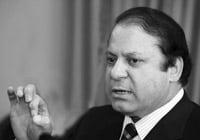
Secondly, when the new government took office in February 2008, Pakistan’s economic situation was extremely precarious. Its foreign reserves were at an all-time low, stagflation had set in and due to the fluctuation in oil prices, an uncertain, almost near-crash situation confronted the new policy-makers. It is evident that through creative and not-so-creative engineering aimed towards macro-economic stabilisation, the federal government pulled the country out of this particular economic abyss. This scribe argued against the IMF package in 2008: however, subsequent events have proved that the economic managers perhaps had no choice at that particular juncture.
Thirdly, the political reform aimed towards the inclusion of marginalised areas of Pakistan has also been a major step forward. In particular, the Gilgit-Baltistan reform package and the induction of a provincial government there have gone largely unnoticed. Similarly, the Balochistan package has been a critical demonstration of the government’s strategy to end political conflict and assuage separatist tendencies that have now become a reality among the beleaguered Baloch communities and its leadership. It has been argued that the package is not enough or that its implementation is slow, but there are few people in Pakistan who would deny that this was a much-needed step towards the federal-integrationist agenda of the civilian government.
Fourth, the concerted effort towards providing a viable, reliable, and transparent social safety-net mechanism has also been a major development in the last twenty months. The Benazir Income Support Programme through its peculiar design and speedy implementation has targeted the poor, especially the women. Independent evaluations have suggested that at least 60 percent of the assistance is reaching the intended beneficiaries. There are leakages, wastage and politicisation but the numbers are not unimpressive at all.
The less savoury aspects of the civilian government relate to the manner in which it has dealt with the issue of the judiciary, especially when it was forced to restore the judges after a street agitation became a distinct possibility. Furthermore, its handling of the Punjab and the imposition of governor’s rule was uncalled for and led to systemic instability, legacy of which is still haunting us. More seriously, the government has not been able to muster a competent and clean team around the office of the President and this is one of the key reasons that the President’s moral legitimacy has remained under attack and now it is subject to judicial review.
The allegations of corruption in the past and present have prejudiced the public perception. Furthermore, the energy crisis and inflation have also eroded the popular support to the government as reflected by the limited opinion polls that have been conducted largely by external agencies. It is also not clear what the development strategy of the current government is, given the huge challenges of stagflation. The economic management of civilian governments is always a tricky affair, as they need to balance their populist agenda with the grim realities of budget rationalisation. This is why the cuts on development expenditure announced will not go down well and the results from development investments in any case take four to five years to germinate. The appointment of a banker as the lead economic advisor has also been a major stumbling-block to advancing the economic interests of the poor, which happen to be the popular base of democratic dispensations. Such betrayal of people’s aspirations rarely goes down well in the public arena and electoral contests. Therefore, it is quite certain that the PPP government will not be able to retain its strength in the next elections, unless of course, we witness miraculous economic recovery and expansion of employment opportunities in the country. However, the biggest threat to economic recovery and developmental outcomes is the continued political instability that has gripped popular imagination thanks to the media industry.
It is, therefore, essential that three key elements of governance are improved: firstly, the political compromise between competing elites out to undo each other; second, the resolution of the thorny federal-provincial relations where the Punjab province once again appears to be pitted against the smaller units of the federation; and thirdly, that the political forces of Pakistan must save the constitutional order despite all its pitfalls, gaps and contradictions. This is a key lesson that they have to learn from their hated neighbour. Political stability and certainty of the democratic process is a non-negotiable requirement for Pakistan’s progress.
All in all, the national policy frameworks have witnessed shifts that require the continuation of civilian order. It is not necessary that the ruling party should continue in office to carry forward these policy shifts after the completion of its tenure in 2013. Any legitimate and accountable democratic government would need to deepen, modify, and improve these policies and further the agenda of responsible governance and social justice.
The writer is a policy adviser and a writer based in Lahore. He blogs at www.razarumi.com and edits Pak Tea House and Lahore Nama e-zines. Email: razarumi@gmail.com
